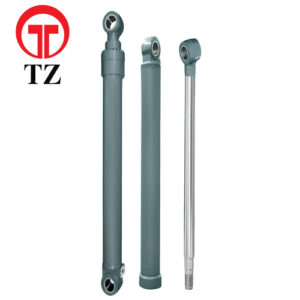Excavator machine control systems are advanced technologies that use sensors and GPS technology to improve the accuracy and efficiency of excavation operations.
Here are some key features of excavator machine control systems:
GPS technology: Excavator machine control systems use GPS technology to provide accurate positioning data for the excavator. This allows the operator to precisely position the excavator and perform excavation operations with greater accuracy.
Sensors: Excavator machine control systems use sensors to measure the position and movement of the excavator’s boom, bucket, and other components. This allows the system to provide real-time feedback to the operator and adjust the position of the excavator as needed.
Integrated software: Excavator machine control systems use integrated software to process the data from the GPS and sensors, and provide feedback to the operator. This software can also be used to create 3D models of the excavation site, allowing the operator to visualize the excavation process and make adjustments as needed.
Automatic functions: Excavator machine control systems can be programmed to perform certain functions automatically, such as digging to a specific depth or angle. This can improve the efficiency of excavation operations and reduce the risk of errors.
Remote monitoring: Excavator machine control systems can be equipped with remote monitoring capabilities, allowing supervisors to monitor the progress of excavation operations in real-time from a remote location.
In summary, excavator machine control systems are advanced technologies that use GPS, sensors, and integrated software to improve the accuracy and efficiency of excavation operations. excavator stick cylinder They offer a range of features including automatic functions, remote monitoring, and 3D modeling, making them a valuable tool for construction and excavation companies.
How do excavator machine control systems compare to traditional excavation methods?
Excavator machine control systems offer several advantages over traditional excavation methods.
Here are some ways in which excavator machine control systems compare to traditional excavation methods:
Accuracy: Excavator machine control systems use GPS and sensors to provide accurate positioning data and real-time feedback to the operator. This allows for greater accuracy in excavation operations, reducing the risk of errors and improving overall efficiency.
Efficiency: Excavator machine control systems can be programmed to perform certain functions automatically, such as digging to a specific depth or angle. This can improve the efficiency of excavation operations and reduce the time and cost associated with manual excavation.
Safety: Excavator machine control systems can improve safety by reducing the need for manual excavation, which can be dangerous and labor-intensive. The system can also alert the operator to potential hazards, such as underground utilities or unstable soil conditions.
Cost: Excavator machine control systems can help to reduce operating costs by improving efficiency and reducing the need for manual labor. This can result in significant cost savings over traditional excavation methods.
Environmental impact: Excavator machine control systems can help to reduce the environmental impact of excavation operations by reducing the amount of material that needs to be excavated and the time required for excavation.
In summary, excavator machine control systems offer several advantages over traditional excavation methods, including greater accuracy, efficiency, safety, cost savings, and reduced environmental impact. While there may be a higher initial investment required for the machine control system, the long-term benefits can outweigh the costs and provide a valuable tool for construction and excavation companies.
